Divemaster Course in Bali
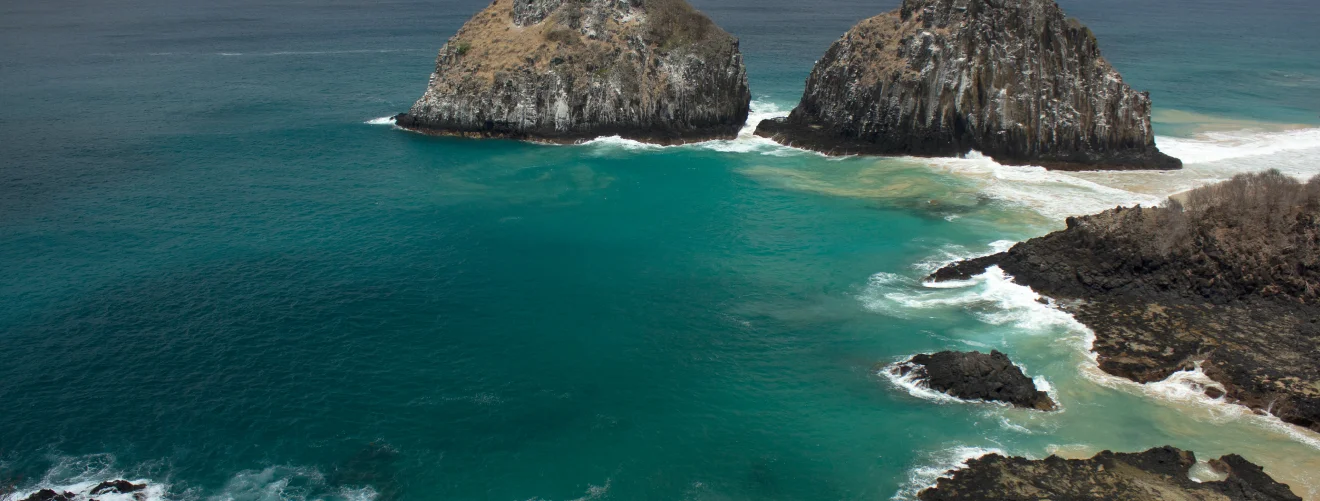
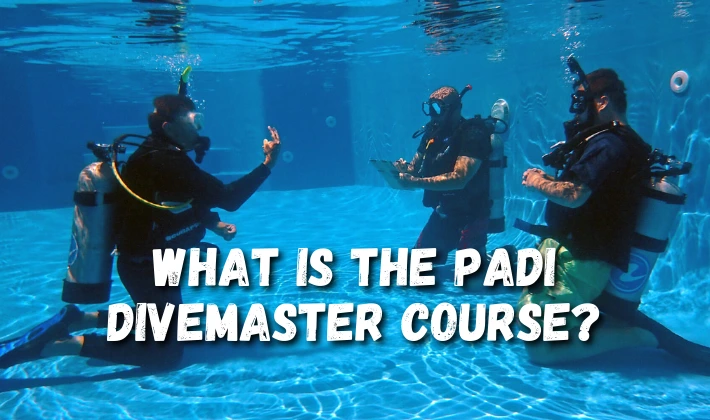
What is the PADI Divemaster Course?
The PADI Divemaster course in Bali is your first step to becoming a dive professional and begin your career in scuba diving. Divemasters Bali is an intense but fun professional training program which will earn you the status of PADI Pro. Starting a career in scuba diving requires experience but above all special training. The PADI Divemaster Course is a professional training program during which you will be trained to safely lead and supervise diving activities. The divemaster course in Bali has a duration of approximately 4 to 5 weeks although some dive centers may offer longer programs. During the course you will build experience, test your skills and develop knowledge with a combination of workshops led by our experienced PADI instructors.
The divemasters bali workshops are all according to the PADI Divemaster crew pack and contain exciting topics, for example:
- Diver safety and risk management
- Conducting dive briefings
- Assisting with Discover Scuba Diving
- Assisting Open Water and Advanced Open Water courses
- Mapping dive sites
Throughout the entire several weeks of training, divemaster candidates will also undergo a series of water skills and stamina exercises that will put everyone to the test:
- 15 minutes floating
- 800 meters snorkeling
- 400 meters swimming
Without a doubt, the divemasters bali course is an intense program but it's also fun. It requires dedication but in the end the satisfaction is rewarding as you will be well prepared to begin a career in the diving industry. After successfully passing the final exam and reaching the required minimum points, you will proudly receive your brand new PADI Divemaster certification recognisable all around the world.
As a PADI Divemaster you will be able to independently guide and supervise certified divers, assist PADI Instructors with student courses such as the PADI Open Water Diver course. As you gain more experience, you can then join any PADI instructor development program in the world and establish yourself as a PADI Instructor.
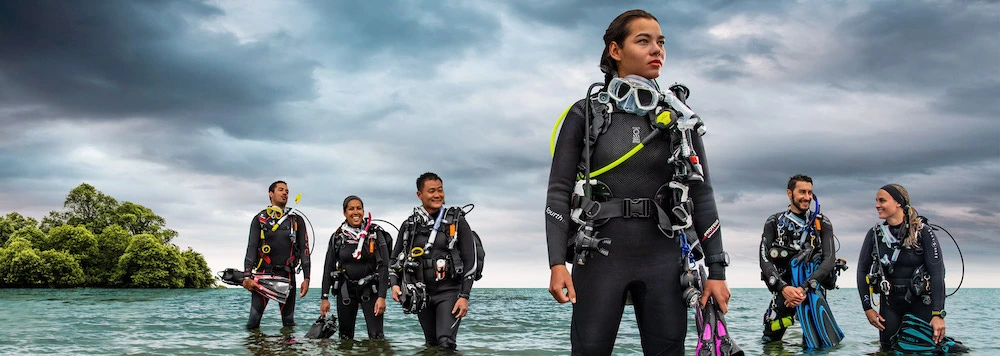
Divemasters Bali course
What are the prerequisites? ; The equipment you will use ; Diving activities during the course
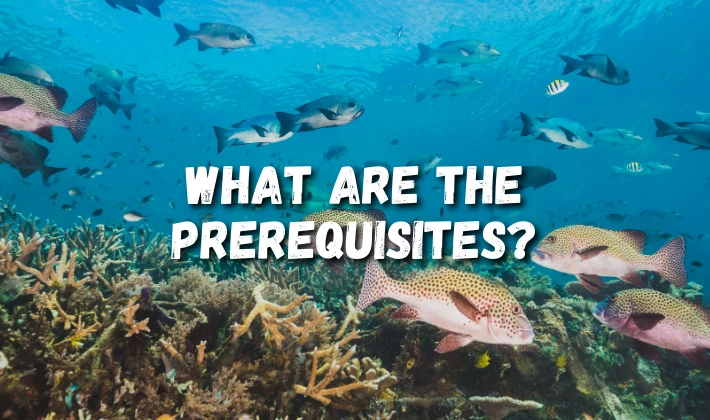
What are the prerequisites?
To quality for the PADI Divemasters Bali course you must be at least 18 years old, PADI Rescue Diver certified with 40 logged dives, and Emergency First Response certified within the last 24 months. Personal medical clearance is also required.
BOOK YOUR PADI DIVEMASTER COURSE IN BALI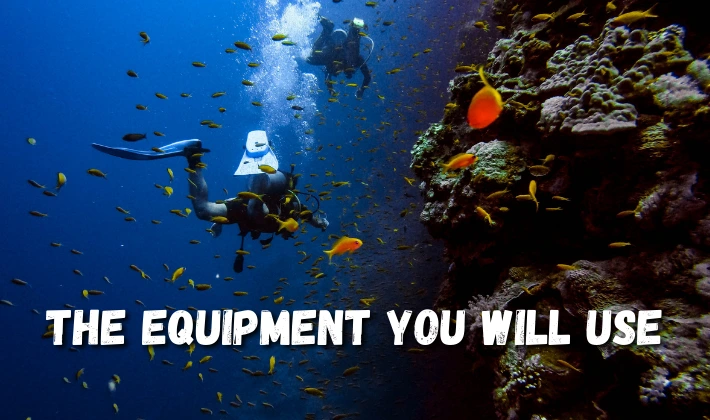
The equipment you will use
Throughout the divemaster course in Bali, we will provide you with full set equipment rental although it is highly recommended that divemaster candidates purchase specific diving equipment such as: dive computer, compass and SMB (Surfer Marker Buoy).
BOOK YOUR PADI DIVEMASTER COURSE IN BALI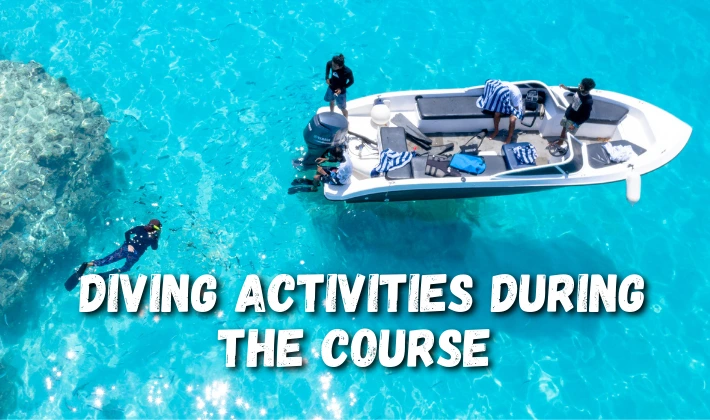
Diving activities during the course
During the divemaster course you will perform approximately 60 dives in all of Bali's popular dive locations. You will not be able to choose your dive sites as you will depend on the schedule of the dive center but will perform proper scuba diving assisting guests, working together with the diving team while increasing your experience.
BOOK YOUR PADI DIVEMASTER COURSE IN BALIFrequently Asked Questions
Everything you need to know about the product and billing. Can't find the answer you're looking for? Please chat to our friendly team.
See More FAQsCan you provide an overview of the PADI Divemaster program?
What is the level of difficulty of the PADI Divemaster program?
What is a divemaster in Bali?
What are the requirements to become a divemaster in Bali?
How do I find a reputable divemaster in Bali?
What is the typical divemaster-to-diver ratio in Bali?
Can divemasters in Bali provide dive site recommendations based on my interests and skill level?
Do divemasters in Bali speak English?
How do I become a divemaster in Bali?
What can I expect from a divemaster-led dive in Bali?
Join more than 1,000 monthly guests from all around the world visiting us for Scuba Diving, PADI Courses, Snorkeling, and Freediving.
Email or contact us by WhatsApp. We reply promptly between 9AM and 5PM, every day.